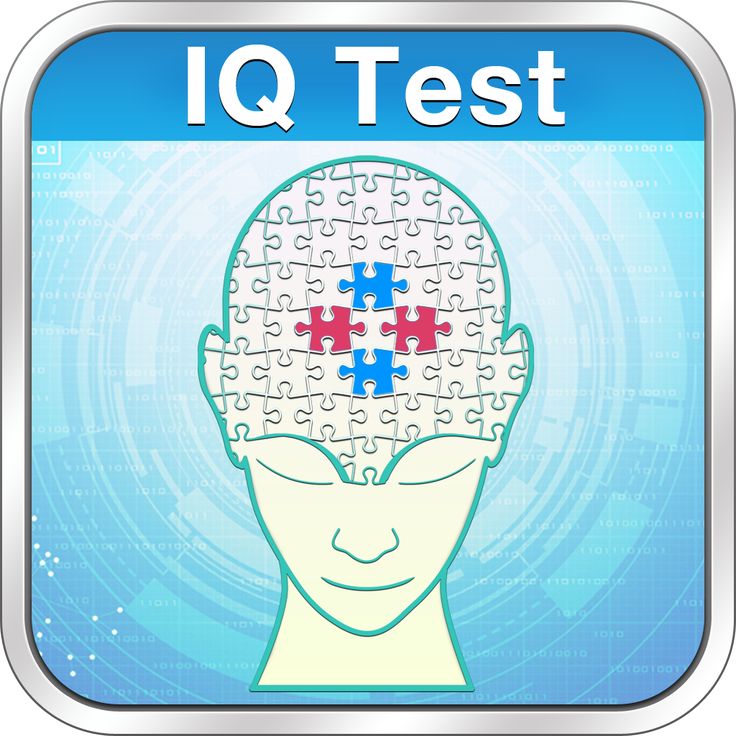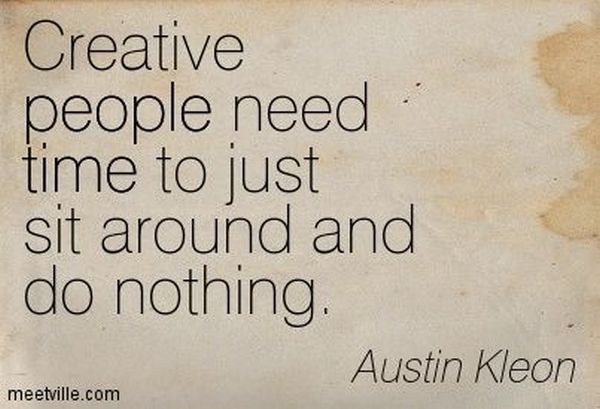Identity crisis treatment
Definition, Symptoms, Causes, and Treatment
Overview
Are you questioning who you are? Maybe what your purpose is, or what your values are? If so, you may be going through what some call an identity crisis.
The term “identity crisis” first came from developmental psychologist and psychoanalyst Erik Erikson. He introduced the ideas of adolescent identity crises as well as midlife crises, believing that personalities developed by resolving crises in life.
If you’re experiencing an identity crisis, you may be questioning your sense of self or identity. This can often occur due to big changes or stressors in life, or due to factors such as age or advancement from a certain stage (for example, school, work, or childhood).
Here’s what you need to know about identity crises, if you might be having one, and what you can do.
Having an identity crisis isn’t a diagnosable condition, so there aren’t typical “symptoms,” as with a cold or flu. Instead, here are the signs you may be experiencing an identity crisis:
- You’re questioning who you are — overall or with regards to a certain life aspect such as relationships, age, or career.
- You’re experiencing great personal conflict due to the questioning of who you are or your role in society.
- Big changes have recently occurred that have affected your sense of self, such as a divorce.
- You’re questioning things such as your values, spirituality, beliefs, interests, or career path that have a major impact on how you see yourself.
- You’re searching for more meaning, reason, or passion in your life.
It’s completely normal to question who you are, especially since we change throughout our lives. However, when it begins to affect your daily thinking or functioning, you may be having a crisis of identity.
Is it something more serious?
Any type of crisis can also result in a decline in your mental health.
Viewing yourself or your life negatively has been shown to be a marker for vulnerability to depression.
If you have any signs of depression, consider seeking help. You should seek help immediately if they’re accompanied by suicidal thoughts.
Symptoms of depression can include:
- depressed mood or feelings of hopelessness or worthlessness
- loss of interest in things once enjoyed
- fatigue
- irritability
- changes in appetite or weight
- issues with concentration, energy levels, motivation, and sleep
Although often thought of as happening at certain ages (for instance, in teens or during “midlife crises”), an identity crisis can happen to anyone, of any age, at any point in one’s life.
Oftentimes, identity crises or other mental health issues can arise due to major life stressors. These stressors don’t have to be inherently bad, but they can still cause a lot of stress, which makes you question who you are and what you value.
Stressors can include:
- getting married
- getting divorced or separated
- moving
- experiencing a traumatic event
- losing a loved one
- losing or getting a job
- new health issues
These and other stressors can certainly have an impact on your daily life and how you see yourself.
One recent study found that factors such as social support, stress levels, and health issues could all influence the development of an often-called midlife crisis.
Questioning your sense of self may be stressful, but it can actually be a good thing in the long term. Knowing who you are better and adapting to changes can help you grow as a person.
Here are some things you can do to get through an identity crisis:
Look inward and explore
Take some time out to really look within yourself and ask yourself some questions about what you like and don’t like anymore.
Ask yourself questions and see if you can answer them over time and if the answers help you figure things out. Remember, you don’t have to have all the answers — and they may change from year to year, or decade to decade.
Questions might include:
- What qualities and characteristics define you? How has this changed over the years?
- If you’re experiencing a major life change: How have things changed for you? Are you content with these changes? How can you cope with these new things occurring?
- What are your values? Is anything working in opposition to them?
- What are your interests, passions, and hobbies? Are you doing what you like to do, and if not, why not? (If you love to play tennis and haven’t for several years, what factors are preventing it?)
- What grounds you? What helps you cope when you’re struggling?
- What’s important to you regarding your values, purpose in life, or sense of identity? Is there anything you feel you can do to improve your sense of self?
Search for joy and other ways to cope
What makes you happy? What gives your life a sense of purpose and joy?
You don’t necessarily have to have the perfect job, but if you aren’t doing anything fulfilling in your life, then this might be why you feel like you’re in crisis.
You may find fulfillment in volunteering, taking up a new hobby, connecting with others, or any number of other things outside of your employment. Or, you may find that a new job will be a more appropriate match for who you are.
Find support
Having good social support can help influence how well you cope with big changes, stressors, or questions of identity. There are so many places you can find support.
Look for support in:
- friends, partners, and family members
- your community or church
- a new group, club, or meetup that shares your interests
- a support group, especially when dealing with a new health issue
- mental health group or individual therapies
- team sports or activities
Ignore internal and external judgment
Other people’s expectations as well as our own can have a big effect on how we’re feeling. But don’t let society’s standards dictate who you are and what you should like.
Just because you’re of a certain age, gender, or cultural group, doesn’t mean that you need to follow along if you no longer believe in what you’re following.
Your self-perception is important to your overall well-being, and spending time and energy on judgmental thinking can get you nowhere. It may take time for the people you love to understand any changes you make, but you’ll be happier in the long term if you’re true to yourself.
Seek outside help
If the stress ever gets to be too much, consider seeking outside help. This can come from a trustworthy friend or family member to talk to, or a mental health professional to help you resolve and cope with what’s going on.
Never feel afraid to ask for help. Life — especially big changes — can feel scary, but we all go through it.
Sense of self and identity is important to everyone. Although having an identity crisis can make you feel lost or frustrated, these types of crises can also be fundamentally helpful.
Questioning your sense of self, your purpose, and your values can help you gain a better sense of you who are and who you will be. Remember, change is a part of life, and looking back you will see that you’ve been changing all along.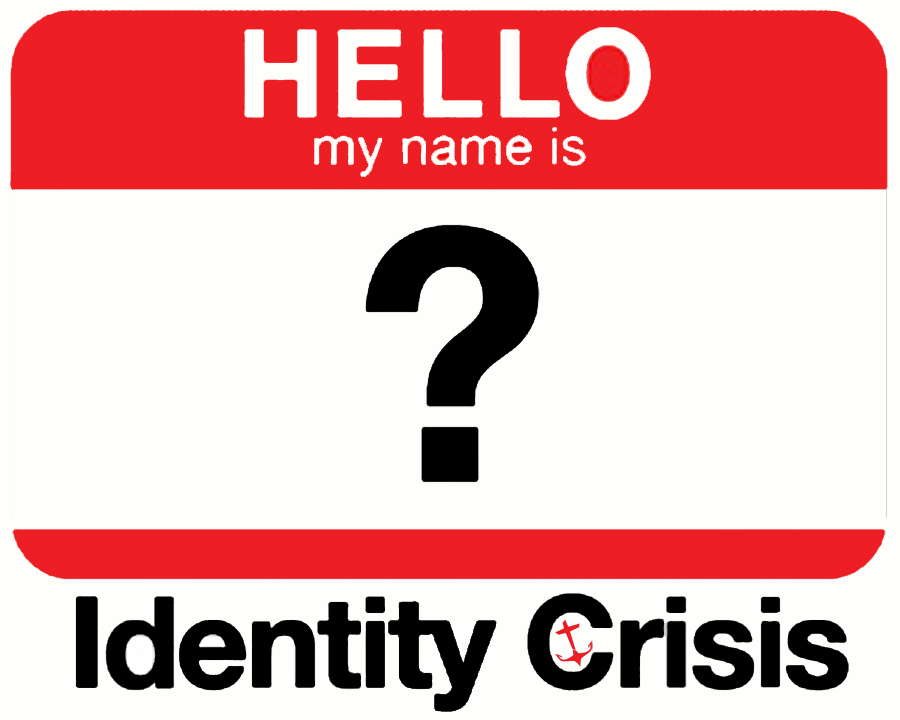
If you’re experiencing a lot of major life stressors and you feel like you’re in a serious mental health crisis, contact a professional who can help you work through what you’re going through.
Q:
Do all adolescents experience an identity crisis, and how can parents support their children who might be going through this?
Anonymous patient
A:
Many people believe that adolescence is invariably a time of “storm and stress,” which may be partially attributable to identity formation or even “identity crisis.” However, research does not support this notion. Many adolescents make it through this developmental stage without issue, while some find themselves having moderate challenges that they are able to negotiate after some time and effort, or with some additional support. A small minority will have substantial issues that require intensive and ongoing supports. Whatever the case, all adolescents do find themselves defining and deciding upon “who they are,” as they are given more opportunities to be self-directive and autonomous during the transition to adulthood. It is important for parents to create an atmosphere of safety and openness, whereby adolescents feel comfortable sharing their insights and feelings without fear of judgement. Such a relationship will foster the types of conversations that will support adolescents through their transitions, whatever the level of challenge or “crisis.”
It is important for parents to create an atmosphere of safety and openness, whereby adolescents feel comfortable sharing their insights and feelings without fear of judgement. Such a relationship will foster the types of conversations that will support adolescents through their transitions, whatever the level of challenge or “crisis.”
Dillon Browne, PhDAnswers represent the opinions of our medical experts. All content is strictly informational and should not be considered medical advice.
Signs of an Identity Crisis & What to Do About It
Skip to contentPublished: April 26, 2022 Updated: October 11, 2022
Published: 04/26/2022 Updated: 10/11/2022
If you’ve found yourself questioning your values, your path in life, or the answer to the question, “Who am I?” you may be struggling with an identity crisis. Identity crises are often able to be resolved through some combination of self-exploration, therapy, and help from a support system.
Who am I? A therapist can help you more clearly hear your inner voice. BetterHelp has over 20,000 licensed therapists who provide convenient and affordable online therapy. BetterHelp starts at $60 per week. Complete a brief questionnaire and get matched with the right therapist for you.
Choosing Therapy partners with leading mental health companies and is compensated for referrals by BetterHelp
Visit BetterHelp
What Is an Identity Crisis?
An identity crisis is a personal, psychosocial conflict that often occurs during adolescence, though it may happen at any time. It involves confusion about one’s social role and sense of self.1
What Is Identity?
There is expansive research on identity that shows that identity development can be a difficult or tumultuous period in a person’s life. Erik Erikson, an important figure in identity research, theorized that we all go through stages of psychosocial development during our lives that challenge us to develop certain skills. 2
2
Erikson proposes that if you do not achieve the ability to establish some sort of identity or role within society and yourself, this stage can bring on an identity crisis (also called “role confusion”). If you feel forced into an identity, you may begin to rebel, experience unhappiness, and even create a negative version of yourself.3
Concerns Similar to an Identity Crisis
An identity crisis can sometimes be a more general and vague term used to describe any number of challenging situations. In practice, you might be experiencing an identity crisis, or it might be:
- Midlife crisis
- Quarter life crisis
- Career change or dissatisfaction
- Gender dysphoria
- Adjustment disorder
- A mental health disorder like depression or bipolar disorder
An identity crisis may cause feelings of frustration, being stuck, or lacking meaningful progression. Furthermore, an identity crisis can influence feelings of depression or anxiety, making people feel unsatisfied with themselves and their lives.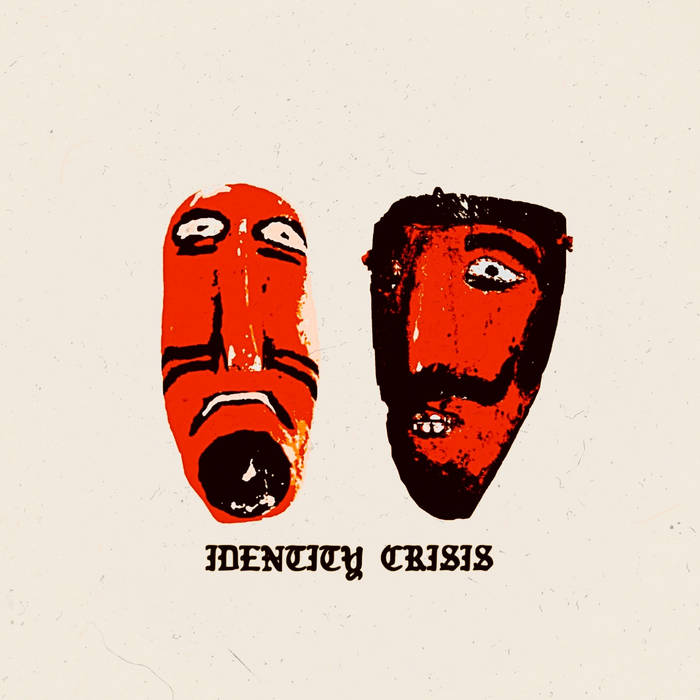 5 This type of personal crisis may be more difficult to identify in one’s own self as the experience is more vague than the symptoms of other mental health illnesses.
5 This type of personal crisis may be more difficult to identify in one’s own self as the experience is more vague than the symptoms of other mental health illnesses.
Here are common signs of an identity crisis:4,5
- Questioning your character
- Questioning traits that influence your self-perception
- Questioning your purpose or passion in life
- Experiencing anxiety or unrest
- Altering your values or inclinations frequently to match your environment or relationship
- Difficulty answering questions about yourself
- Difficulty trusting your ability to make decisions
Is It Something More Serious?
An identity crisis can be a problematic and uncomfortable situation, but it is not usually dangerous. Something else can be fueling the identity crisis and result in a more serious situation – depression.
Depression is a general term for a group of depressive mood disorders that lead to low mood. It can also lead to self-harm, thoughts of death, and suicide.
It can also lead to self-harm, thoughts of death, and suicide.
Signs of depression may include:
- Mood changes and irritability
- Low energy and motivation
- Loss of interest in pleasurable activities
- Sleep, appetite, or weight changes
- Poor attention, concentration, and decision-making
- Thoughts about death and dying
- Feeling sped up or slowed down
How Identity Develops
Identity develops as a person progresses through different statuses. Depending on a person’s status, they could be exploring a new identity or holding strong to their current state.
The four types of identity status include:8
- Foreclosure: A person in foreclosure is strongly committed to their points of view, but they have lacked exploration. Often, they stick to the perspective others laid out for them.
- Achievement: Alternatively, people in the achievement status did have an exploratory session before deciding on their identity.
 They make commitments based on their personal beliefs and values.
They make commitments based on their personal beliefs and values. - Diffusion: In diffusion, people are lacking commitment in their lives. Worse, they are not working towards a state of commitment.
- Moratorium: These people are the seekers. They are trying to find their identity and are experimenting with options before committing fully.
Causes of an Identity Crisis
Many causes of identity crises are fairly common and include big life changes, stress, or general advancement through the different stages of life.
Common causes of an identity crisis include:4
- Occurrence of a traumatic event, like a motor vehicle accident or witnessing something violent
- Loss of someone you love, regardless of the manner
- Major life transitions, like moving, changing schools, or switching careers
- Significant health changes, like being diagnosed with cancer or diabetes
- Relationship changes (romantic, friendly, or familial)
All of these causes can affect how you function on a basic level. They may even be a shock, impacting your perspective of yourself, as well as your thoughts on your occupation, relationships, values, and interests.
They may even be a shock, impacting your perspective of yourself, as well as your thoughts on your occupation, relationships, values, and interests.
Identity Crisis in Adolescence
While people in all stages of life can experience an identity crisis, adolescents tend to be most prone. A study conducted in 2015 found that 37% of teens were struggling with their identity, and 95% of teens reported that they had felt inferior at some point in their lives.6
Adolescents also tend to be less familiar with techniques used to cope with traumatic events, losses, and changes in relationships, which increases their risk for stress and anxiety. While the development of self-worth is incredibly important for adolescents as they begin on the journey to self discovery, people at any stage in life are at risk of experiencing an identity crisis.
Is an Identity Crisis a Good Thing?
A crisis may sound like an obviously negative situation, but it may not be completely negative.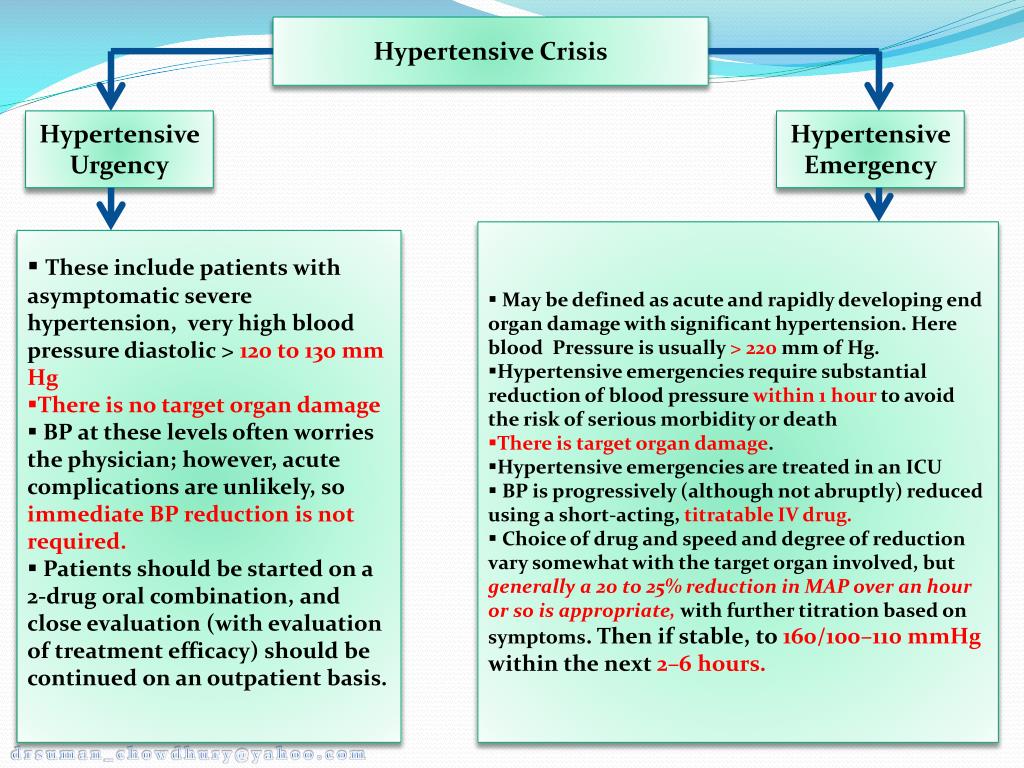 Identity crises give people the opportunity to explore alternative ways of thinking, feeling, and living. Identity crises can serve as a warning system to indicate that there’s a problem. By recognizing the problem, the person is able to address and resolve the issue. Hopefully, the end result is a happier, healthier individual who is more firm on their identity and their values.
Identity crises give people the opportunity to explore alternative ways of thinking, feeling, and living. Identity crises can serve as a warning system to indicate that there’s a problem. By recognizing the problem, the person is able to address and resolve the issue. Hopefully, the end result is a happier, healthier individual who is more firm on their identity and their values.
Popular Choices For Online Therapy
BetterHelp – Best For Those “On A Budget”
Brightside – Best For Anxiety & Depression
Talkspace – Best For Therapy & Medication
According to 14 Best Therapy Services of 2022 (updated on 8/9/2022), Choosing Therapy partners with leading mental health companies and is compensated for referrals by BetterHelp, Brightside, and Talkspace
10 Tips for Coping With an Identity Crisis
While an identity crisis can be difficult to handle, it is a common experience, and there are ways to cope like practicing objectivity, challenging negative thoughts, and taking time to express your values, desires, and needs.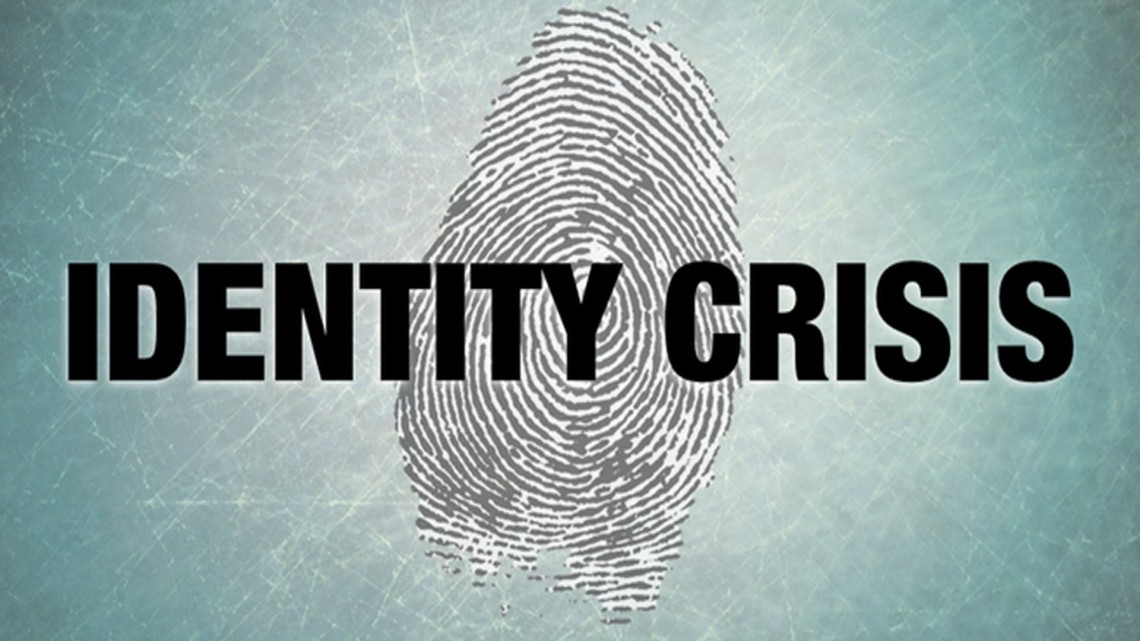 Coping with an identity crisis requires you to look inward and do some exploration of yourself without internal or external judgment.
Coping with an identity crisis requires you to look inward and do some exploration of yourself without internal or external judgment.
Here are ten ideas for how to deal with an identity crisis:7
- Practice objectivity: Allow yourself time to reflect before reacting
- Challenge negative and irrational thoughts: Change the way you perceive difficult situations and events and any negative self-talk, and allow time to identify what is making you uncomfortable
- Express yourself: Practice communicating the values that are important to you
- Engage in guided meditations or journaling: Actively reflect and process to reduce any potential anxiety and increase self-awareness
- Engage in self-care: Work toward increased self-acceptance and self-awareness
- Identify unique traits in yourself: Increase self-awareness and knowledge of how you want to spend your time moving forward
- Learn to set boundaries: When trying to figure out who you are and what you want out of life, setting boundaries with people and commitments can help you get clearer on your path forward
- Avoid negative coping: Crises may be uncomfortable, and many people use negative coping skills to escape or avoid discomfort.
 Be sure to avoid drugs, alcohol, and promiscuous sex and focus on your identity.
Be sure to avoid drugs, alcohol, and promiscuous sex and focus on your identity. - Lean into the crisis: Staying on the idea, build comfort in exposing yourself to the crisis. It may have a scary name, but you can limit the discomfort by dealing with it directly, with honesty and openness.
- Keep future-oriented: Thinking about the future puts you in a better position. The process may be difficult now, but it allows you to become a better, happy person in the future.
When to Talk to a Professional
If your identity crisis is lasting for an extended period, getting worse, or making you think about harming yourself or someone else, get in touch with professional mental health care as soon as possible. Even if your identity crisis has not caused problems yet, a professional can help you determine what next steps would help you move forward in a positive way while increasing your comfort and safety.
Treatment for an Identity Crisis
Talk therapy is the best way to seek help when experiencing an identity crisis. Therapy gives you the space to ask and process questions you may be struggling with, identify your strengths and values, do self-esteem work, and process what may have happened that led to the identity crisis itself.
Therapy gives you the space to ask and process questions you may be struggling with, identify your strengths and values, do self-esteem work, and process what may have happened that led to the identity crisis itself.
There are quite a few options when it comes to overcoming an identity crisis through therapy. In general, talk therapy can help, but there are also more specific, evidence-based therapies that tend to be common forms of treatment. These include cognitive behavioral therapy, person centered therapy, and acceptance and commitment therapy. It may also be helpful to try group therapy to hear about others’ experiences as well.
Different therapies range in their treatment time, but many will span between 8 to 12 sessions. That said, therapists can and often do suggest more sessions based on your unique needs, presentation of mental illness, and reason for treatment.
How to Get Help for an Identity Crisis
Whether or not you know what type of therapy you’d like to pursue to treat your identity crisis, an online therapist directory is the perfect place to start your search. A directory of therapists will show you reviews, relevant information, and cost details. It also allows you to filter for areas of interest, like CBT, ACT, or Person Centered Therapy.
A directory of therapists will show you reviews, relevant information, and cost details. It also allows you to filter for areas of interest, like CBT, ACT, or Person Centered Therapy.
After doing your research through an online directory, you’ll be better equipped to make the best choice for yourself. Choosing a therapist is a positive first step toward getting the help you need.
Final Thoughts on Identity Crisis
Studies have shown that those who commit to understanding their identity and exploring the facets of themselves are happier and healthier than those who do not. Just remember, while this is a highly personal journey, you don’t have to go it alone.
Additional Resources
Education is just the first step on our path to improved mental health and emotional wellness. To help our readers take the next step in their journey, Choosing Therapy has partnered with leaders in mental health and wellness. Choosing Therapy may be compensated for referrals by the companies mentioned below.
BetterHelp (Online Therapy) – BetterHelp has over 20,000 licensed therapists who provide convenient and affordable online therapy. BetterHelp starts at $60 per week. Complete a brief questionnaire and get matched with the right therapist for you. Get Started
Online-Therapy.com – Receive help from a caring professional. The Online-Therapy.com standard plan includes a weekly 45 minute video session, unlimited text messaging between sessions, and self-guided activities like journaling. Recently, they added Yoga videos. Get Started
Brightside Health (Online Psychiatry) – If you’re struggling with serious mental illness, finding the right medication can make a difference. Brightside Health treatment plans start at $95 per month. Following a free online evaluation and receiving a prescription, you can get FDA approved medications delivered to your door. Free Assessment
Headspace (Meditation App) – Headspace is the leading mindfulness and meditation app with over 70 million members. Headspace offers guidance and exercises for all skill levels, including beginners. Free Trial
Headspace offers guidance and exercises for all skill levels, including beginners. Free Trial
Choosing Therapy’s Directory – Find an experienced therapist specializing in anxiety. You can search for a therapist by specialty, availability, insurance, and affordability. Therapist profiles and introductory videos provide insight into the therapist’s personality so you find the right fit. Find a therapist today.
Choosing Therapy partners with leading mental health companies and is compensated for referrals by BetterHelp, Online-Therapy.com, Brightside, and Headspace
For Further Reading
- Mental Health America
- National Alliance on Mental Health
- MentalHealth.gov
- Books About Self-Love
8 sources
Choosing Therapy strives to provide our readers with mental health content that is accurate and actionable. We have high standards for what can be cited within our articles. Acceptable sources include government agencies, universities and colleges, scholarly journals, industry and professional associations, and other high-integrity sources of mental health journalism.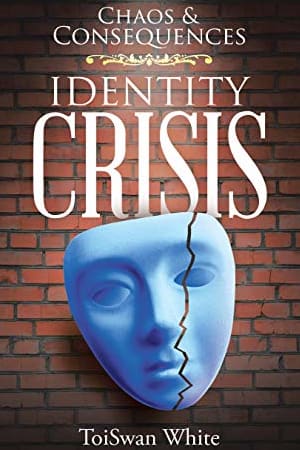 Learn more by reviewing our full editorial policy.
Learn more by reviewing our full editorial policy.
-
APA Dictionary of Psychology. Identity Crisis. https://dictionary.apa.org/identity-crisis
-
APA Dictionary of Psychology. Ego-Identity. https://dictionary.apa.org/ego-identity
-
Erik Erikson | Psychosocial Stages – Simply Psychology. Retrieved from http://www.simplypsychology.org/Erik-Erikson.html
-
Chang HK. Influencing factors on mid-life crisis. Korean J Adult Nurs. 2018;30(1):98. doi:10.7475/kjan.2018.30.1.98
-
Nekesa, F., & Pottratz, A. (2021, January 10). Help! Who Am I? 7 Signs That You Suffer From an Identity Crisis (1175662294 881003291 S. Jacobson, Ed.). Retrieved from https://www.harleytherapy.co.uk/counselling/who-am-i-identity-crisis.htm
-
Keck School of Medicine USC. (2019, January 30). Chapter 12 – Interventions for Identity Issues. Retrieved from https://keck.usc.edu/adolescent-trauma-training-center/treatment-guide/chapter-12-interventions-for-identity-issues/
-
Psychology.
 (2016, January 25). Identity Crisis – IResearchNet. Retrieved from http://psychology.iresearchnet.com/social-psychology/self/identity-crisis/
(2016, January 25). Identity Crisis – IResearchNet. Retrieved from http://psychology.iresearchnet.com/social-psychology/self/identity-crisis/ -
Marcia, J.E. (2001). Identify in Childhood and Adolescence, International Encyclopedia of the Social and Behavioral Sciences. Retrieved from https://www.sciencedirect.com/topics/social-sciences/identity-status
update history
We regularly update the articles on ChoosingTherapy.com to ensure we continue to reflect scientific consensus on the topics we cover, to incorporate new research into our articles, and to better answer our audience’s questions. When our content undergoes a significant revision, we summarize the changes that were made and the date on which they occurred. We also record the authors and medical reviewers who contributed to previous versions of the article. Read more about our editorial policies here.
-
Originally Published: February 12, 2021
Original Author: Renee Skedel, LPC
Original Reviewer: Kristen Fuller, MD -
Updated: April 26, 2022
Author: No Change
Reviewer: No Change
Primary Changes: Updated for readability and clarity. Reviewed and added relevant resources. Added “Is It Something More Serious?”, “How Identity Develops”, and “Is an Identity Crisis a Good Thing?”, and “When to Talk to a Professional”. New material written by Eric Patterson, LPC, and reviewed by Kristen Fuller, MD.
Reviewed and added relevant resources. Added “Is It Something More Serious?”, “How Identity Develops”, and “Is an Identity Crisis a Good Thing?”, and “When to Talk to a Professional”. New material written by Eric Patterson, LPC, and reviewed by Kristen Fuller, MD.
If you are in need of immediate medical help:
Medical
Emergency
911
Suicide Hotline
800-273-8255
Identity crisis: what to do if you lost yourself
Health
© Victorien Ameline/Unsplash
Author Vasilisa Kirilochkina
February 27, 2019
A personal crisis happens at least once in a lifetime. We seem to be stuck in limbo, where old values and aspirations no longer inspire, and new ones have not yet appeared. Pink figured out how to recognize the impending crisis and make the most of it.
Asking philosophical questions about the meaning of life and your purpose is normal and even good. But if thinking about such important topics leads to a dead end, spoils your mood, interferes with normal functioning and drives you into a blues, you may be experiencing an identity crisis. For the first time this concept was introduced by the famous American psychologist Eric Erickson. In his writings, he paid special attention to the midlife crisis, but noted that any period of personality reshaping can lead to a loss of self-determination. The good news is that a competent way out of any crisis helps a person grow and develop.
But if thinking about such important topics leads to a dead end, spoils your mood, interferes with normal functioning and drives you into a blues, you may be experiencing an identity crisis. For the first time this concept was introduced by the famous American psychologist Eric Erickson. In his writings, he paid special attention to the midlife crisis, but noted that any period of personality reshaping can lead to a loss of self-determination. The good news is that a competent way out of any crisis helps a person grow and develop.
There are a number of signs, by the combination of which an alarming state can be recognized. First of all, it is a painful search for oneself, which is accompanied by negative thoughts and frustration. If for a long time (more than a month) you are trying to rethink your purpose, values and aspirations, but do not get the desired answers, if every day at work you ask yourself “What am I doing here?” or look at your partner and think “Why are we together?”, you should carefully analyze your condition.
Crisis can be triggered by severe stress and significant changes in life: loss or change of job, separation, loss of a loved one, serious illness, any severely traumatic experience or shock. The causes of the crisis lie not only in the bad. Moving to another continent that you have been dreaming about and planning for five years, or marriage can also become an impulse. If after the wedding you feel empty, this does not necessarily mean that you have chosen the wrong person: you just need to rethink your new status.
Advertising on RBC www.adv.rbc.ru
Sometimes a severe crisis and dissatisfaction with oneself can lead to depression - a dangerous condition that should never be started. It is better to consult a doctor, he can pick up a competent therapy. But in many cases, an identity crisis is just a transitional state that needs to be experienced. To make it easier, try special techniques.
© Jasmine Ornelas/Unsplash
An identity crisis is a great opportunity to really get to know yourself, discover something new and become more aware. So that the search for answers to the main questions of life, the universe and everything else is not so painful, try to change the tone of these questions.
So that the search for answers to the main questions of life, the universe and everything else is not so painful, try to change the tone of these questions.
For example, stop asking "Why?" and start asking "why?" The first question will force you to dig into the past, and the second will set you up to look for a solution in the future. Make up a questionnaire for yourself with all the important questions and fill it out. Remember, this is not an exam, so there are no wrong answers. Moreover, it is not necessary to answer all the questions at once, and the answers can change at any time. This includes asking yourself, “What cheers me up? What helps you get through a tough day? Write a list of everything that improves your mood, and refer to it as often as possible during a crisis (and indeed throughout your life).
In especially sad moments, a cup of hot chocolate, a walk with a friend, sports or even watching a reality show about repairs can help you: do not deny yourself pleasures and in no case blame yourself for them. Another important question is “What makes my days meaningful?”. What helps you fall asleep with a sense of accomplishment, pride, and joy? Perhaps you are unhappy with your job and are not yet ready to look for an alternative - but you may well enroll in some useful volunteer program or courses to learn new skills. New knowledge, among other things, helps fight depression and increase the flexibility of the mind.
Another important question is “What makes my days meaningful?”. What helps you fall asleep with a sense of accomplishment, pride, and joy? Perhaps you are unhappy with your job and are not yet ready to look for an alternative - but you may well enroll in some useful volunteer program or courses to learn new skills. New knowledge, among other things, helps fight depression and increase the flexibility of the mind.
One is not a warrior in the field, even when it comes to internal throwing and searching. Social support really makes it easier to survive stressful situations, difficult emotional states and personality crises. Try to discuss your situation with friends and family - perhaps they too have gone through something similar or are going through right now, so they can share their experience. In any case, you can count on, if not advice, then at least empathy and support. If you feel that friendly empathy is not enough, do not be afraid to contact a psychologist or support groups (especially when it comes to a crisis after an illness or loss). Another great option is to join some kind of sports section: a team game brings people together and gives a lot of positive emotions.
Another great option is to join some kind of sports section: a team game brings people together and gives a lot of positive emotions.
© kevin laminto/Unsplash
Perhaps the most important thing in the story of finding yourself is to look for yourself, and not the image that meets someone's expectations: boyfriend, mother or society as a whole. At 30, you may find that you don't want to be the big boss at all. By refusing to climb the career ladder in a large company, you risk becoming an outsider in the eyes of society. Or let's say you're not ready to be a parent just yet. Buy an apartment. Get into a serious relationship. It can happen the other way around: while everyone around is constantly traveling, getting up for surfing, writing books and sitting on the splits, you just want to come home from work at six in the evening and watch TV shows.
Society can always judge you - when you do something, don't do it, or don't do it the way it's supposed to. But the beauty of society is that it is ephemeral and faceless.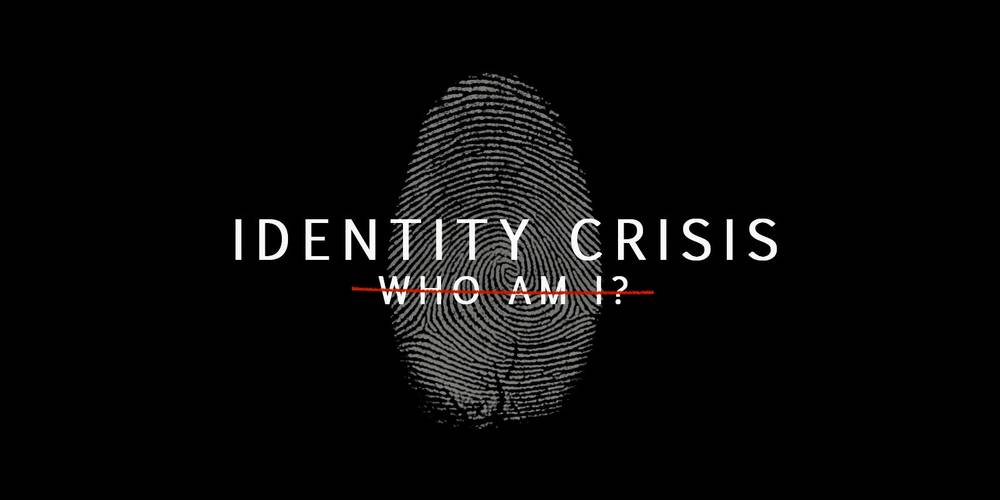 But real friends, good colleagues and loyal partners are quite real people. They are more likely to not judge choices that make you happy. Whatever you do, whatever values you adhere to and whatever ideals you strive for, you will always find like-minded people who will support you. So the main thing is to understand yourself. And the rest will follow.
But real friends, good colleagues and loyal partners are quite real people. They are more likely to not judge choices that make you happy. Whatever you do, whatever values you adhere to and whatever ideals you strive for, you will always find like-minded people who will support you. So the main thing is to understand yourself. And the rest will follow.
gifl1949 - Identity crisis
“Exactly where we cannot change the situation, we are called to change ourselves,” wrote Viktor Frankl.
How often do you hear from your acquaintances and friends the phrase that a personal crisis has come in their life? Or maybe you think that this phenomenon has affected you too? And is it really so. Let's figure it out so as not to harm ourselves with unnecessary unreasonable assumptions!
Throughout life, a person has to face difficult situations that can lead to a personality crisis. The trigger for a crisis can be not only unfortunate events (terminal illness, separation, death of loved ones, job loss, etc. ), but also joyful events (wedding, promotion, birth of a child). It also happens that an insignificant event “launches” a crisis, that is, it becomes the “last straw” in changing the worldview. At a certain moment, a person begins to feel that changes have taken place inside him, and he can no longer live as before. But at the same time, he has no idea how to adjust his newly arisen inner sensation to the world around him. It turns out that the situation is experienced as a crisis when a person ceases to see ways out of it. At the same time, during this period, a person is open to new experiences, which means that a crisis can serve as a basis for positive changes and become an important personal experience. The desire to overcome an uncomfortable state serves as a motivation for finding new solutions and development.
), but also joyful events (wedding, promotion, birth of a child). It also happens that an insignificant event “launches” a crisis, that is, it becomes the “last straw” in changing the worldview. At a certain moment, a person begins to feel that changes have taken place inside him, and he can no longer live as before. But at the same time, he has no idea how to adjust his newly arisen inner sensation to the world around him. It turns out that the situation is experienced as a crisis when a person ceases to see ways out of it. At the same time, during this period, a person is open to new experiences, which means that a crisis can serve as a basis for positive changes and become an important personal experience. The desire to overcome an uncomfortable state serves as a motivation for finding new solutions and development.
Thus, a crisis is a kind of reaction of a person to situations that require him to change his way of being - life style, way of thinking, attitude towards himself, the world around him and the main problems of life.
The essence of the crisis is such that it makes a person doubt the possibility of overcoming it. The understanding of a crisis as a transition from one way of being to another usually exists in a person outside a crisis situation. When he finds himself immersed in the gloomy depths of life's difficulties, he has a feeling that it will never end and he will not be able to get out of this state. In this case, the crisis is perceived as the final collapse of life.
Consider the main symptoms of a personality crisis.
1. Changes in the emotional state. A person in crisis, as a rule, is extremely apathetic to everything that happens and does not express feelings.
2. Detachment. The crisis of personal growth in people who are faced with it causes absolute indifference to everything that happens. They do not care about the worries and problems around, they are completely immersed in themselves. In some cases, irritability, nervousness and even aggressiveness are observed when relatives and friends try to get them out of this state.
3. Sleep disorders. People in this state sleep very poorly, get up regularly at night, and cannot wake up in the morning.
4. Physiological changes. During a crisis, a person begins to refuse food or eat in very small quantities, which causes rapid fatigue. Due to lack of sleep, the color and condition of the skin changes. Such people can often get sick due to a weakened immune system.
Peculiarities of overcoming a personal crisis
If you look at it, then every person can overcome a personal crisis. The main thing is not to lose control and gradually achieve your goal. It is necessary to assess the situation and draw up a step-by-step plan for overcoming the crisis. Try to "turn off" feelings. If this is difficult to implement, you can ask for help from a loved one.
The plan will only be effective if:
· A clear goal. You need to choose a realistic and achievable goal for yourself: find a job, learn English, go to college, make friends, travel. Do everything that will help get out of the crisis and bring positive emotions.
Do everything that will help get out of the crisis and bring positive emotions.
Find the main motive. It is worth noting that there may be several of them, but it is important to determine the main one. For example, a new job is the path to a good financial situation. That is, set a goal for yourself and explain what it will give.
· Define search parameters. What specific job do you need to find, what to do there, who to be? How should others, colleagues, friends perceive? What should a work day look like? What level of income will suit? What can you sacrifice to achieve your goal? All these questions will have to be answered. So you can correctly identify a potential goal and not deviate from it.
· Write a list of things that are necessary on the way to achieve the goal. To find a new job, you need to register at the labor exchange and search for vacancies on your own. You can also call friends and acquaintances, because very often work appears in an unexpected way. To achieve great heights, it is recommended to take refresher courses, improve foreign languages and devote time to your self-education. If the main goal is to make friends, then it is important to visit public places, communicate more and show interest.
To achieve great heights, it is recommended to take refresher courses, improve foreign languages and devote time to your self-education. If the main goal is to make friends, then it is important to visit public places, communicate more and show interest.
· Do not deviate from the plan. Despite the fact that the result may not be immediately visible, this does not mean that actions are taken in vain. Sometimes you have to wait to get the desired result.
· Don't give up. Even if some point of the plan does not lend itself to the first time, then this is not a reason to doubt your abilities.
Also, in order to give yourself confidence during the period of overcoming the crisis, you can resort to the following methods:
· Realize a real dream. Almost every person has a small dream for which there was not enough time or energy. Now is the time to implement it (for example: learn to roller skate, take up acting, etc.)
Go in for sports. It may not be just a gym, the modern field of sports services allows you to find something to your liking.



